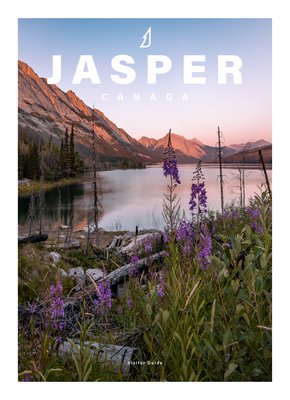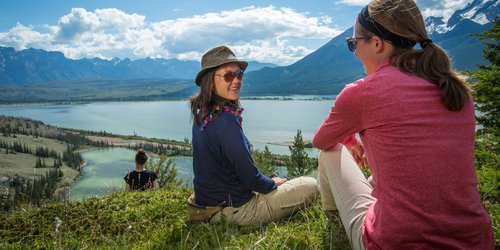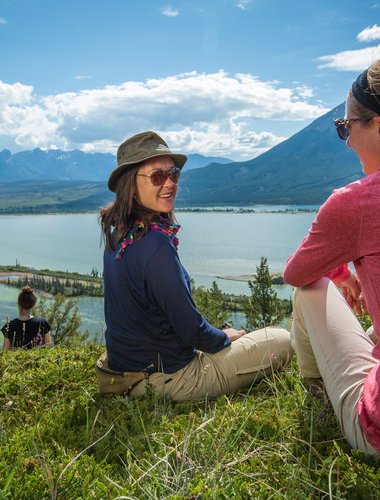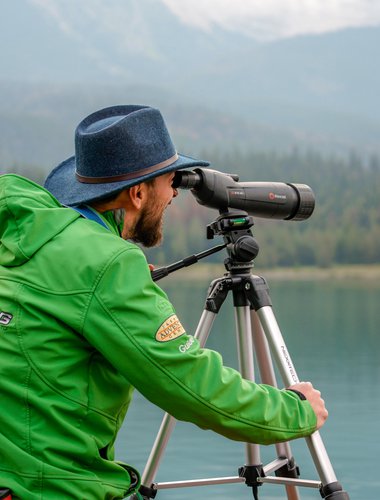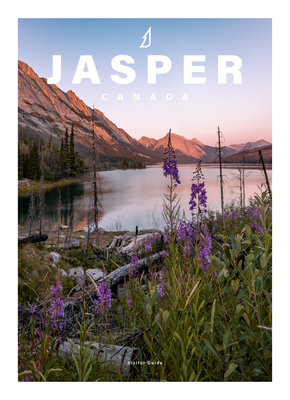Jad Abumrad is the host and creator of Radiolab, a public radio program broadcast on 524 stations across the nation and downloaded more than 9 million times a month as a podcast.
On October 25, Abumrad will deliver the Keynote talk at the Jasper Dark Sky Festival (get tickets for this event and the audience-favourite SpaceTalks for just $50 with the Star Package). Here, he chats about the wonder of dark skies, his love for and struggles with science communication, and that time he short-circuited his children’s brains with a telescope.*
What are you most looking forward to about the festival?
I really like the idea of going to Jasper. Something about the travel it would take to get there. The festival itself looked so beautiful, but I’m also just so excited about the location.
What can people expect from the keynote?
I’m somebody who has never entirely figured out the work life balance. I don’t really know anybody who has. I think it’s kind of a global cultural fiction [laughs]. I'm super passionate about the work we do at Radiolab and More Perfect, but there have been times where you just hit the wall and you feel kind of done, so my talk kind of digs into that. There was a time when I wasn’t really sure why we were doing what we were doing. I had a little bit of a crisis. I had to get to a deeper level. When it happened, I took a break from the show, and during that time I wasn’t entirely sure whether I would return. But over the six months that I was away, I remembered a lot of things. This talk is kind of reminding myself why it matters to do the work that we do.
On one level it’s really personal, about coming to the end of something and learning how to restart it again, but on the other level it’s just about the basic building blocks of what I do. So it’s part storytelling workshop and part personal story.
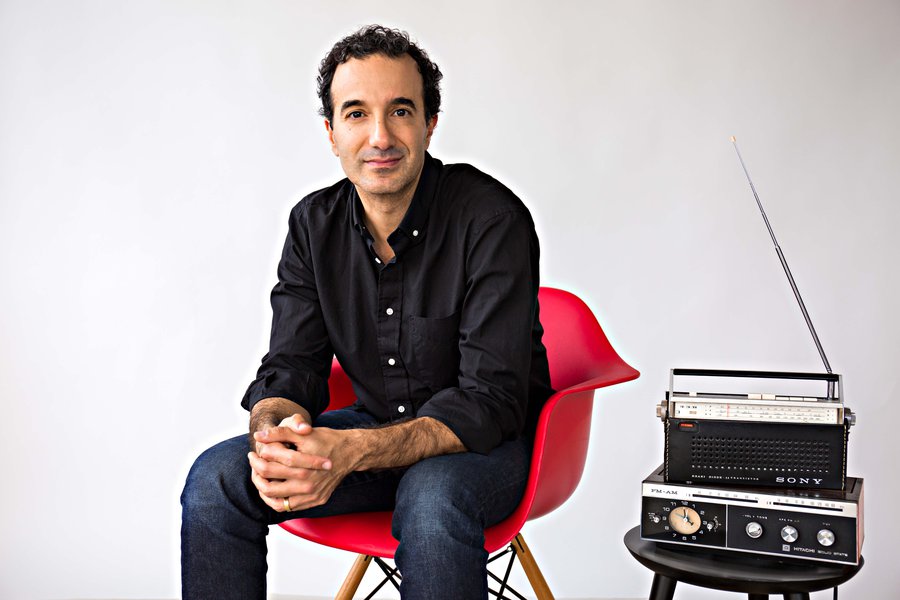
Photo Credit: Lizzy Johnston
Space is a common theme in Radiolab. What keeps drawing you back to the subject?
Looking up is something we return to again and again. We had an entire episode about space as an imaginary place where we project our dreams. We returned to the Voyager space capsule. The night sky, the stars, the physics of interstellar space. It’s been one of the real through lines of Radiolab from the beginning.
When you look up, I feel like you can connect very naturally with early peoples. To look up and wonder. It’s very important to us. The beautiful thing about [Jasper] is the sky is dark. In New York City there’s so much light pollution that you can only see one or two stars. The sky seems so manageable. Oh there’s a star, there’s one But then you go to a wide open space and you see the range, and it’s just breathtaking. It just feeling, God what a fluke! What a fluke that we’re all sitting here. It’s the greatest awe.
"That was a profound moment for humanity, to see ourselves as so insignificant and conditional. None of this is inevitable."
Jad Abumrad
Why should people care?
So speaking of the Voyager, do you remember the picture, one of the first things it did, is it turned around and took a picture of Earth. The pale blue dot. What you see is just this big field of stars and a little blue dot suspended in a sunbeam, and that’s Earth. That was a profound moment for humanity, to see ourselves as so insignificant and conditional. None of this is inevitable. When we connect to that sense of scale, it’s very humbling. For me it’s about placing ourselves in the right proportion. Let’s not get ahead of ourselves and think of ourselves as anything other than a cosmic accident. If we think of things that way maybe we’ll take care of this incredible miracle.
What’s been a great experience you've had with a dark sky?
A couple years ago, we took our boys to Fire Island, which still has some light pollution but far less than New York City. There was a group of amateur stargazers, who had some pretty significant telescopes, some as tall as a person. The kids got to look through one, and you could almost see their brains short circuit. They can barely wrap their heads around the world down here and you’re telling me there’s a whole other world up there? The scale of it was almost too much for them. It was a kind of happy short circuiting. For me it’s like that. I’d call it not just awe but staggering awe. The last really dark sky I saw was around two years ago, so I’m excited to see Jasper’s.
If you could be a planet which would you be and why?
I like Neptune, the blue planet. It’s just so beautiful and unsung. No one really thinks about it but it’s just so pretty.
*Editor's note: This interview has been shortened and lightly edited for clarity and length.
